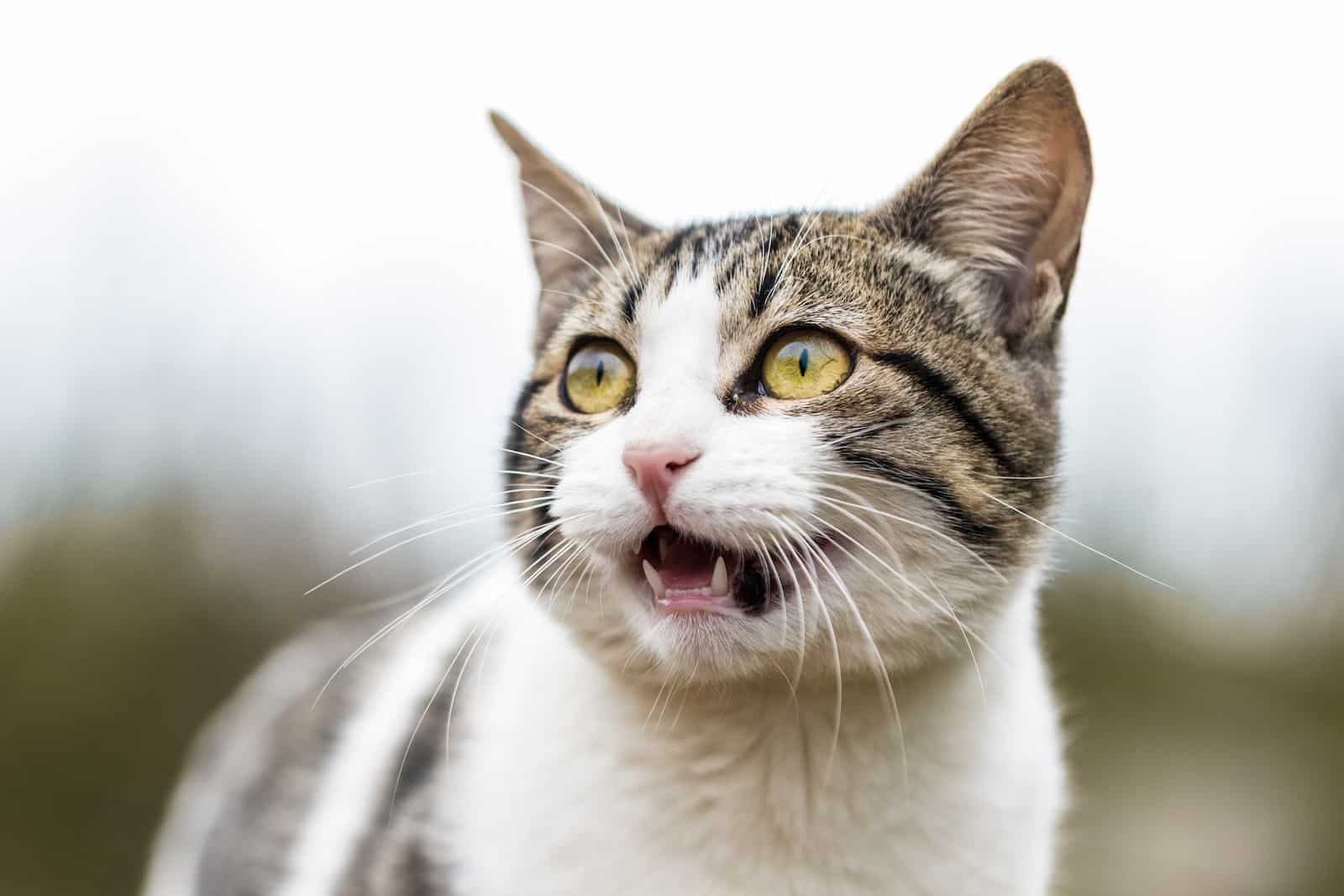Why do cats meow at night?

Your cat is peacefully sleeping throughout the day, but as soon as the night rolls in, their energy peaks, and they start meowing excessively. Does this sound familiar?
Many cat owners experience the same scenario and are left wondering, "Why do cats meow at night?". As your feline friends have a unique language of their own, it’s essential to understand the reasons behind this behavior to ensure you meet their needs and maintain a peaceful nighttime environment.
A lire également : Why do cats scratch furniture and how to stop it?
Understanding Feline Behavior
Before diving into the reasons why cats meow at night, it’s critical to understand the natural behavior of cats. Cats are primarily nocturnal creatures, which means they are most active during the dawn and dusk hours. This behavior is rooted in their ancestry as wild cats, where they would hunt during these hours to avoid other predators.
Moreover, meowing is a form of communication in cats. They naturally use it to grab their human companion’s attention. However, excessive meowing, especially at night, may indicate underlying issues that you need to address.
A lire également : How to train your dog to respond to basic commands?
Hunger or Thirst
One of the simplest explanations for your cat’s nighttime meowing is that they might be hungry or thirsty. Cats have a small stomach, which means they need to eat more frequently. If your pet is on a diet habit of being fed in the morning and evening, they may be hungry again by the time night falls.
It’s worth noting that cats also meow to show their appreciation for food. They might be trying to tell you that their food or water bowl is empty. Try adjusting their feeding schedule or leaving some dry food out for them to eat during the night.
Seeking Attention
Cats, just like humans, crave attention and interaction. If your cat is meowing at night, they may be reaching out to you for some play time or a simple petting session. This is especially common in cats that spend most of their day alone or are not getting enough mental and physical stimulation during their waking hours.
Remember, cats need regular play and interaction to be healthy and happy. If they are not getting enough during the day, they will try to get it during the night when you’re trying to sleep. Try spending more time with your cat during the day or before bedtime.
Health Issues
If your cat’s nighttime meowing is accompanied by changes in appetite, weight, or behavior, it might be an indication of underlying health issues. Some common health problems that can cause excessive meowing include hyperthyroidism, kidney disease, and cognitive dysfunction syndrome.
If your cat’s meowing is persistent and does not stop despite addressing potential issues like hunger, thirst, or lack of attention, it’s time to consult your vet. A thorough check-up can help identify if your pet is suffering from any health conditions that need to be addressed.
Environmental Changes
Cats are sensitive to changes in their environment. This can include anything from a new pet or a newborn baby in the house to rearranging the furniture or moving to a new home. Any of these changes can stress your cat, leading to behavioral issues like excessive meowing.
To help your cat adjust to environmental changes, try to keep their routine as consistent as possible. If any significant changes are unavoidable, introduce them gradually and give your cat plenty of time to adapt.
Aging and Cognitive Dysfunction
Just like humans, cats can experience cognitive decline as they age. This condition, known as cognitive dysfunction syndrome, can disrupt a cat’s sleep cycle, leading them to be more active and vocal during the night. Symptoms of this condition can include disorientation, changes in social interactions, and alterations in sleep patterns.
If you suspect your cat is exhibiting signs of cognitive decline, it’s essential to visit your vet. They can confirm the diagnosis and suggest suitable treatments to manage the condition.
In conclusion, there are several reasons why your cat might be meowing at night. By carefully observing your cat and noting any additional symptoms or behavioral changes, you can help pinpoint the cause and take the necessary steps to ensure their well-being and a peaceful night’s sleep for both of you.
Litter Box Issues
Some cats will meow at night due to discomfort linked to their litter box. If you notice your cat meowing and repeatedly visiting the litter box, it could be an indicator of a urinary tract infection or other health issues related to their elimination.
Cats are incredibly clean creatures by nature and having a clean litter box is crucial for them. Therefore, if their litter box is too dirty or not easily accessible, they might start meowing to express their discomfort. Additionally, sudden changes in the type of litter can also make your cat uneasy, causing them to meow at night.
Constant meowing can also be a sign of senior cats struggling with arthritis, which might make it hard for them to climb into a litter box with high sides. To address this, try using a litter box with low sides and ensure it is clean and easily accessible, especially during the night.
Remember, any alterations in your cat’s elimination patterns warrant a visit to the vet to rule out any serious health issues like kidney disease.
Dealing with Yowling at Night
Yowling at night can be particularly distressing, both for you and your cat. Yowling is a longer, more drawn out "meow" that is often a sign of distress in cats. Cats may yowl at night for several reasons including loneliness, anxiety, seeking attention or due to health issues.
If your cat is an unspayed female, she might yowl during the night due to being in heat. Similarly, unneutered male cats might yowl to signal their availability to females. To prevent this, it’s recommended to spay or neuter your cat.
If your cat is old, nighttime yowling could be a sign of cognitive dysfunction, similar to Alzheimer’s in humans. The symptoms can include disorientation, changes in interactions, altered sleep patterns, and increased yowling.
If you notice your cat yowling at night, it’s crucial to first try to identify the cause. If you can’t figure it out or if the yowling is continuous, a visit to your vet might be necessary. They can conduct a thorough check-up to rule out any underlying health issues and provide guidance on how to address the problem.
Conclusion
Understanding why your cat is meowing at night can help you address their needs more effectively and ensure a peaceful environment for both of you. Whether it’s due to hunger, thirst, seeking attention, health issues, environmental changes, aging, litter box issues, or yowling, there is usually a valid reason behind your cat’s nighttime communication.
It’s critical to remember that excessive meowing or yowling, especially if accompanied by other changes in behavior, should not be ignored. It might be a sign of underlying health conditions, some of which can be serious like kidney disease.
In any case, a visit to the vet can provide reassurance and guidance on how to ensure your feline friend is happy, healthy, and silent during the night. Be patient, mindful, and proactive in addressing the reasons why your cat meows at night. After all, a peaceful night’s sleep is not just beneficial for you, but also for your beloved pet.
